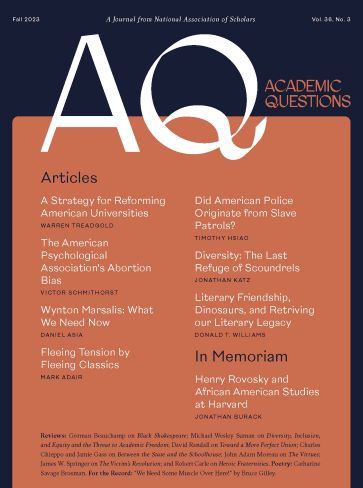If we didn’t expect today’s work to ease tomorrow’s, we wouldn't work much.
This simple principle regulates human behavior and all biological action. G. K. Zipf, linguist and statistician, carefully studied our aversion to work and published his important conclusions over seventy years ago in Human Behavior and the Principle of Least Effort (1949). Before that, he had been known for Zipf’s Law, a mathematical relationship between two linguistic quantities. He had discovered a universal tendency to communicate with the least effort, this tendency regulating the proportions of words used by a language community. Attesting to its validity, in 1965, Benoit Mandlebrot, the complexity theorist and developer of fractals, appropriated Zipf's Power Law to make the Zipf-Mandelbrot Law, a probability relationship still used in modern complexity science. Zipf's later book on Least Effort generalized his Power Law, showing that people, animals, plants and even machines, in pursuing their purposes, seek the path of least resistance.
That people work hard all their lives seems to contradict Zipf's thesis. The contradiction, however, is only apparent. However hard we work, that work, as Zipf pointed out, avoids even harder work in the present or future, work such as living hand to mouth or enduring shame. This capacity of living things to anticipate, or expect, future work-demands made Zipf refine his theory into the principle of least average rate of expectable effort.
To harmonize Zipf's principle with depth psychology, we can revise it into the “principle of least (average rate of expectable) tension,” tension being a demand for psychological work. This revision implies a basic need to reduce the most expectable tension in the shortest time. However, the human power to obliterate perception calls for a further refinement (and an apology for its ponderous title): the principle of least average rate of expectable perceptible tension.
The threat of this principle’s corrosive tendency spawned paideia, the heart of humanist education: academic discipline to build endurance for psychological tensions.
In a sense, the work of mental growth—education—is itself an effort to minimize or evade expectable tension and work, and therefore obeys Zipf’s principle. However, deep learning and classical education also represented society’s best defense against the mental death and social annihilation that universal tension-evasion breeds. That defense is self-knowledge.
Aristotle’s guiding educational principle, like Plato’s, was to make not only good citizens but, nota bene, good philosophers, thinkers heedful of self-deception. Their creed was unpopular because it burdens people with the obligation to cultivate their minds. It shames those who would not or could not contemplate and reflect, delay gratification, or acknowledge unpleasant realities. It imposes a tension few willingly bear. A humanist education rooted in classical languages was once the most emphatic public endorsement, and enforcer, of this obligation. Its pedagogical regimen for mental growth taught moral perseverance and warned against the tension-dodging delusion of omnipotence.
The decline and fall of classical education signify a hidden group hatred of the tensions affiliated with the higher powers of the mind; they express social and historical tension-evasion, a thirst for inertia, and entropic decline.
But isn’t our aversion to work ordained by entropy? I concede that we enrich our minds for the same reason we ignore or distort distressing realities: to evade tensions, or at least our awareness of them. Yet all evasions are not equal. Some are cheap: the effort they require—the few neural depolarizations required to momentarily misdirect attention—is trivial compared to the magnitude of the tensions (such as panic or self-loathing) they instantly obliterate. Paideia is expensive: The effort it requires—decades of solitary study and reflection—is more commensurate with the tensions (panic, perhaps, or self-loathing) these toilsome “evasions” were intended to minimize. For example, delusion is cheaper than the recognition and active modification of the painful inner or outer reality the delusion replaced with so little expenditure of mental effort.
Cheap evasions merely dissipate tensions through action or obliterate them by mental defense. Expensive evasions channel energy into structuralization, that is, the formation, refinement and fortification of mental structures. Mental structures are systems that reliably perform functions such as memory, assessment or anticipation, the matrices of intelligence. Humanist education, especially an education in Greek, is one of those expensive, structure-building evasions.
When the university discarded its compulsory classical curricula in the nineteenth and twentieth centuries, it performed, on behalf of the people, a cheap evasion. It lifted—with little administrative or psychological strain—an irksome intellectual burden from the backs of young people. It lightened prospective students’ social and vocational worries by offering job training instead. It was inexpensive, particularly because society’s nod negated academic leaders’ sense of dereliction. Job training is indeed a labor-intensive evasion, but an evasion much less strenuous than the one for which it was exchanged: the humanist responsibility that the classical academy had formerly imposed not only upon the student, but also on the faculty, administration, and the entire public. By removing that burden, the academy dispersed the tensions recently rising between itself and the public, while enhancing its income stream, a reliable reducer of perceptible institutional tension.
Whatever irritates our sensitivity to exclusion, inequality, or even trivial dissimilarities, awakens the Monster Tension, Envy, the rabies of the heart.1 Social envy, historically embittered by education’s aristocratic associations and exclusionary ideals, was more sharply enfanged by the advancing egalitarian sensibilities of a growing middle class. It grew more bloody-minded in the late nineteenth century culture of falling tension-tolerance and tore away even the remnants of those ideals, leaving only the skeleton of paideia. Upon its remains society raised a gigantic apparatus of inclusion, an institution of prevocational training, entrepreneurship, and technological innovation, an institution devoted to the eradication of envy.
Conventional wisdom, however, explains paideia’s fall without the unpleasantness of envy-psychology. It says that the university abandoned the compulsory Greek and Latin curriculum simply because it did not meet the public’s evolving socioeconomic needs. This, the socioeconomic theory of educational change, is understandable, communicable, and unobjectionable.
And shallow.
What, exactly, does modern society think it wants from higher education? Writer and educator Louis Menand (2011) named three things society asks of the university: to sort out citizens as to their intelligence and aptitude in the interest of optimizing national human resources; to enlighten and socialize its citizens; and to train them for vocations.
This seemed sound to me. It implies that Greek and Latin studies at some point became unserviceable for those responsibilities, and that is why society devalued them. This is the common understanding.
But when we look more closely, we see that Classical studies, even in its faded modern form, meets every one of these responsibilities as well as, or better than nearly every other academic field, fields such as pre-law, pre-medicine, mathematics, political science, or business.
Majoring in Greek and Latin is, we know, a reliable marker of intelligence. Greek and Latin studies, furthermore, promote success in the professions. Classics majors score among the highest of all applicants on the law boards (LSAT) and law school GPAs.2
They even succeed in medicine. In one study, albeit somewhat dated, Classics students taking the Medical College Entrance Exam (MCAT) ranked first in the verbal, third in physical science, and second (a tie) in biology, among ten other majors, including biology and chemistry. (Austerberry, 1997); the same study showed that 50 percent of the Classics applicants were accepted into medical school, the highest percentage of the majors surveyed at that time. This remains true.3
Of course, its students' success doesn't prove the power of the humanist curriculum; it might only show their native intelligence or academic dedication, virtues shared with math and physics majors. That is, in any case, beside the point: unless weak students start flocking to Aeschylus and Thucydides, we can assume that Greek and Latin studies superbly serve the intellectual sorting responsibility of the university.
Classical studies also serve the non-professional vocational responsibility of the academy. Even if Greek and Latin do not specifically prepare students to become pharmaceutical representatives, hospital administrators, bank branch managers, or financial officers of ophthalmology clinics, the Classical curriculum wouldn't interfere with such preparation and might make them better at those jobs, not only by sharpening their memories and improving their logical and abstract thinking skills, but by sensitizing them to the wider social and historical contexts in which their jobs are embedded.
Finally, Greek and Latin students, from the beginning to the end of their training, are immersed in the core ethical and political values of a great world culture, making Classical studies a beacon of cultural enlightenment.
Therefore, the conventional reasons for the demotion of Classical knowledge in the university’s hierarchy of values—that it doesn’t optimize human resources, stoke the economic furnace, or conduce to vocational preparation—don't hold up. Yet the community has told itself that they do.
Few tears fall over this intellectual loss. The academy denies that anything meaningful has died, and reinforces this denial by continuing to drape itself in the robes, and parade in the pomp, of the ancient tradition. Meanwhile, it panders, without a blush, to society’s greed for ease and the delusive reassurance of growth. And society, relieved thereby of the obligation for hard mental work, and satisfied with the convenience of prevocational training, has declined to point its finger at the university's humbuggery. If this behavior was self-destructive, as I think it was, it signified disease, and the great academic shift became a psychopathological mystery to be solved.
The conventional forensics on the university’s death arraigns economic expansion, scientific discovery, global exploration, colonization, and religious doubt. But these are merely accomplices, or dupes. The true culprit is a force inside us.
The group decision to dismantle the humanist university was not primarily practical or rational; it was an adaptation to a growing cultural intolerance of tensions. And if that decision discouraged young people from valuing their inner lives and maximizing their intelligence and talent—insofar as intelligence and talent is measured by the GRE, MCAT, and performance in graduate, law, and medical schools—that decision was not benign.
Vocationalism and Technologization
The rise of vocational schools and the vocationalization of traditionally humanistic schools overspread the globe. In the process, science education eclipsed, or even drove out “liberal” studies.
In the United States, engineering colleges multiplied from thirteen in 1862 to 126 in 1917, and their enrollments from a few hundred to more than thirty-thousand. This increased the need for scientists and science courses in the American university. The last year in which Harvard applicants were required to know classical languages was 1883. By 1892, matriculated Harvard students were allowed to substitute, for Greek and Latin, advanced studies in mathematics or natural science. This sequence sound familiar? By 1900, just eight years later, less than a third were electing Latin, and only sixteen percent Greek.
To slake the nation’s thirst for training and feed its growing economic appetite, Congress passed the Morrill Act of 1862, establishing land-grant universities. These institutions offered practical courses of study (“agriculture and the mechanic arts”) at low cost to a wide group of applicants. Then, as occupations in the late 1800’s became professionalized, colleges in this country too, eyeing their European models, remade themselves into research universities and credentialing bodies, to arm students for victory in the marketplace.
We may wistfully note that, even as the sun was setting on the traditional curriculum, colleges here, as in Europe, were in fact producing highly educated citizens in increasing numbers. Liberal arts and many professional schools still required Greek and Latin. At the turn of the century, for example, the University of Maine required, of all its agriculture graduate students, two years of ancient Greek. But over the next couple of decades our country dumped this system of enrichment. The educators and administrators of that time have been characterized, in their behavior, as Tocqueville characterized the French in the process of their Revolution: being halfway down the stairs, they threw themselves out of the window in order to reach the ground more quickly.
The American self-defenestration, like the European, consisted in the legitimization, even glorification, of research universities, whose essential elements were an elective system and specialization at the undergraduate level. The American academy was answering less to democracy, whose survival, as Jefferson believed, depends upon an educated citizenry, than to market capitalism, which only survives on more and more people trained to burn energy. This utilitarian culture, once it had conquered the larger universities, rapidly annexed smaller institutions, and by 1920, while still tolerating Latin and Greek, had driven compulsory Classical curriculum from all of higher education.
A few years later the Massachusetts Institute of Technology took a startling step, committing itself to industrial innovation and commercial interests and becoming perhaps the first of what later would be called "entrepreneurial universities." After World War II Stanford University copied this model, and in 1951 gave land and facilities in the spacious Stanford Industrial Park to companies like Hewlett-Packard. Since that time more and more universities have assumed this shape, pursuing research contracts from industrial, pharmaceutical, and military concerns, and encouraging their faculty to act as consultants. Other countries followed the same course, England adopting the entrepreneurial model in the 1980's. Thus, did nations make their universities into economic muscles and, as it seems, excretory organs of their national minds.
We can illustrate these transformative years by backtracking to the late 1800's, and observing a leading enthusiast of the progressive movement, a man much beloved for what was considered a broadening and deepening of university education and a raising of secondary school standards, a man celebrated as an educational hero.
Over his forty-year presidency at Harvard, which began in 1869, Charles William Eliot dismantled the Classical curriculum, piece by piece, at our nation’s premier university. In 1887 he dropped Greek as an entrance requirement for Harvard.4 Widespread congratulations fed his hunger for more, so he excused even his matriculated students from compulsory classical toils. Nor had he gratified his appetite for innovation, or popularity, when he left Harvard in 1909. Like the Revolution era anti-classicist Benjamin Rush—distinguished by his clinical habits as the Great Exsanguinator—Eliot slipped into a furor sanandi (curing frenzy), and purged, of its tired blood, the educational system entrusted to his care. In 1915, as a prominent member of the steering committee, he helped the new Lincoln School of Teachers College in New York to specifically exclude Latin and Greek from its curriculum. In 1916 Eliot was still opening veins, publicly insisting that vocational utility—and not liberal education—was to be the rationale for undergraduate instruction. Crucial to his mission was the elective system. “It is a straight line,” E. Christian Kopff noted, “from the introduction of the elective system in high schools and colleges, made possible by the banishment of Greek and Latin from the humanities curriculum, to the current woes of the behemoth university.”
President Eliot may have dimly understood this himself. When leaving Harvard, he produced the fifty-volume Harvard Classics (1909-1910), a Great Books, autodidactic path to liberal education, a path levelled, smoothed, and cleared of Greek and Latin debris by translating ancient masterworks into English. It was as if, in unconscious contrition, he was returning to an injured world the carcass of the humanist education he had drained of its lifeblood.
So, by the 1920s it had come to pass: vocational training, in the once hallowed halls of learning, had replaced education. The academy weeded out courses useless to that training. And the courses most conspicuous in their uselessness were Greek and Latin. Classical education became an elective, and few elected to learn Greek.
As the group pulse pounded at the sight of approaching prosperity, as more and more innovations appeared, as the use of coal spread, as industry expanded and petroleum’s discovery excited scenes in the public imagination of a black gold rush, as humanity increased its power to extract, consume and burn energy resources, the world population grew. At the same time, society withdrew its admiration for the contemplative life, previously a useful inspiration for the classically taught schoolchild. The learned interpreted this withdrawal of respect as an envious warning shot across the academic bow and, as children of their tension-fleeing times, began to hide their lights beneath a bushel. The humanist university was passing away.
Mark Adair is a psychoanalyst practicing in his forty-sixth year. He has written for the International Journal of Psychoanalysis, Psychoanalytic Quarterly, and Journal of Clinical Psychoanalysis, and taught for thirty years on the clinical faculty of Dartmouth Medical School. As an amateur Classics scholar, Adair has lectured at The Classical Association of New England Summer Institute and translated from the Greek for the Classical Journal, a long debated passage in Plato’s Timaeus.
1 Melville’s phrase.
2 J. Engell, A. Dangerfield, “The market-model university: Humanities in the Age of Money,” Harvard Magazine (May-June 1998): 48-55.
3 The Association of American Medical Colleges says that students who major or double-major in Classics have a better success rate getting into medical school than do students who concentrate solely in biology, microbiology, and other branches of science (Princeton Review, 2018).
4 Small schools seem to have held out for a couple more decades. Middlebury College required Greek for admission until 1908.
Photo by Darwin Vegher on Unsplash














